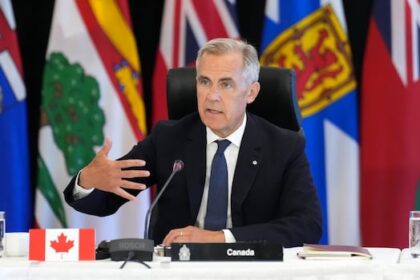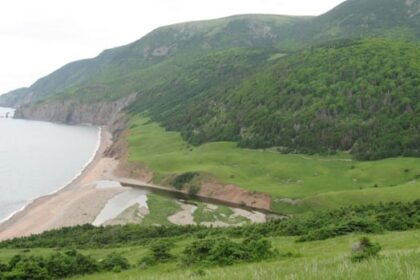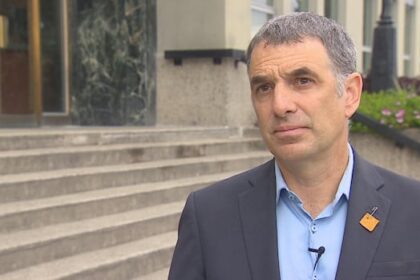Leah Gazan says she won’t be running for the leadership of the federal NDP, despite pressure from across the country urging her to enter the race. “At this time I’m not going to run,” said Gazan (Winnipeg Centre), whose roots are from Wood Mountain Lakota Nation in Saskatchewan, Treaty 4 territory. “Sometimes, during these times of rebuilding, you know what your role is. I represent a community I love, with strengths and needs that I need to focus on.” “Perhaps one day, but right now, certainly not.” The Winnipeg MP confirmed she has been approached by unions, community leaders and party members to throw her name in. But Gazan said her focus remains on serving her riding and using her platform in Parliament to advance human rights. Gazan described herself as “humbled” by the encouragement to run and emphasized that leadership is not just about holding a title. “You don’t necessarily have to have a title to lead,” said Gazan. “All of us are leaders in our own right, no matter where we are or what we do, whether it’s art, poetry, being in this arena, speaking to the public, leading a political party, being a grassroots leader on the ground. We are all leaders in our own right.” Her decision clears the field for other prominent contenders. Avi Lewis launched his campaign in September and Edmonton MP Heather McPherson entered the race soon after. Both bring different strengths and challenges. Lewis is an activist with high name recognition but no Parliamentary experience. McPherson is the only current caucus member running and has backing from figures like former Alberta premier Rachel Notley. Rob Ashton, president of the International Longshore and Warehouse Union Canada, officially announced his candidacy earlier this week. The candidates are vying to replace former leader Jagmeet Singh, who stepped down after the NDP’s worst election loss this past spring. So far none of the candidates in the race for leader are Indigenous. Candidates must declare and register by Jan. 31, 2026. The entry fee for candidates is $100,000. The leadership vote will be decided at the NDP’s national convention in Winnipeg on March 29, 2026. How the NDP plans to navigate Parliament without party status The NDP enters this leadership race from its weakest position in decades. Reduced to seven MPs in last Spring’s election, the party no longer holds official party status in the House of Commons. That means no guaranteed daily questions in Question Period, no automatic seats on standing committees and a major reduction in public funding and staff resources. Without party status, NDP MPs must negotiate case by case for speaking time, committee access, and opportunities to introduce witnesses. Gazan said she has been “fortunate” to gain committee participation when she has asked. The caucus also plans to leverage its numbers strategically. In a minority Parliament, seven votes can still tip the balance of a vote on legislation. The loss of official status is a blow, but Gazan rejects the idea that it sidelines the party. The smaller caucus has already been dubbed a “mighty seven” by Gazan—determined to punch above its weight in spite of the rules. “There certainly are limitations. We’re at a time where we’re seeing what Canada would look with a two party system. We have to avoid that,” said Gazan. ”As we saw with the passing of Bill C-5, which violates the Constitutional rights of Indigenous people to things like free prior and informed consent, so the NDP voice is critical.” Bill C-5, or the One Canadian Economy Act, gives Cabinet sweeping power to fast-track “national interest projects” like mines, pipelines, highways and nuclear plants by letting ministers override existing federal laws and environmental reviews for up to five years. She cites the party’s success in securing an emergency debate on wildfires, the only one granted so far in this Parliament and procedural maneuvering that forced Bill C-5 to be divided into two votes—so New Democrats could support interprovincial trade measures while voting against sections they argued violated Indigenous rights and environmental protections. Gazan framed these moves as proof the “mighty seven” can still punch above their weight and hold the government to account. “Was I shocked by the election? Was I disappointed? Of course, of course. Has that impacted what I’ve gotten done? My motivation, my focus in this parliament? Not at all.” For a party now fighting for survival, the leadership contest will test which candidate can broaden its appeal. But for Gazan and the party, the immediate challenge is proving the NDP can still matter in a Parliament dominated by Liberals and Conservatives who appear willing to form an unlikely partnership. Continue Reading
MP Leah Gazan rules out leadership bid as NDP faces rebuilding moment

Leave a Comment










